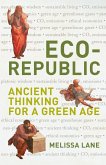Engineering and Value Change
Herausgegeben:Didier, Christelle; Béranger, Aurélien; Bouzin, Antoine; Paris, Hugo; Supiot, Jérémie
Engineering and Value Change
Herausgegeben:Didier, Christelle; Béranger, Aurélien; Bouzin, Antoine; Paris, Hugo; Supiot, Jérémie
- Gebundenes Buch
- Merkliste
- Auf die Merkliste
- Bewerten Bewerten
- Teilen
- Produkt teilen
- Produkterinnerung
- Produkterinnerung
This volume consists of chapters derived from the best papers submitted to the 2023 Forum on Philosophy, Engineering, and Technology (fPET) meeting that took place in April 2023 at Delft University of Technology. Topics and fields covered within the volume include applied ethics, meta-ethics, value theory, education, responsible innovation, political philosophy and value-sensitive design. The contributors present research that addresses the challenges of engineering in a changing world. This text is of interest to students and researchers working in the fields of engineering and philosophy.
Andere Kunden interessierten sich auch für
![An Introduction to the Philosophy of Engineering An Introduction to the Philosophy of Engineering]() Bocong LiAn Introduction to the Philosophy of Engineering117,69 €
Bocong LiAn Introduction to the Philosophy of Engineering117,69 €![An Introduction to the Philosophy of Engineering An Introduction to the Philosophy of Engineering]() Bocong LiAn Introduction to the Philosophy of Engineering83,99 €
Bocong LiAn Introduction to the Philosophy of Engineering83,99 €![The Future of Engineering The Future of Engineering]() The Future of Engineering98,99 €
The Future of Engineering98,99 €![The Future of Engineering The Future of Engineering]() The Future of Engineering98,99 €
The Future of Engineering98,99 €![Eco-Republic Eco-Republic]() Melissa LaneEco-Republic40,80 €
Melissa LaneEco-Republic40,80 €![University Responsibility for the Adjudication of Research Misconduct University Responsibility for the Adjudication of Research Misconduct]() Stefan FranzenUniversity Responsibility for the Adjudication of Research Misconduct83,99 €
Stefan FranzenUniversity Responsibility for the Adjudication of Research Misconduct83,99 €![University Responsibility for the Adjudication of Research Misconduct University Responsibility for the Adjudication of Research Misconduct]() Stefan FranzenUniversity Responsibility for the Adjudication of Research Misconduct76,99 €
Stefan FranzenUniversity Responsibility for the Adjudication of Research Misconduct76,99 €-
-
-
This volume consists of chapters derived from the best papers submitted to the 2023 Forum on Philosophy, Engineering, and Technology (fPET) meeting that took place in April 2023 at Delft University of Technology. Topics and fields covered within the volume include applied ethics, meta-ethics, value theory, education, responsible innovation, political philosophy and value-sensitive design. The contributors present research that addresses the challenges of engineering in a changing world. This text is of interest to students and researchers working in the fields of engineering and philosophy.
Produktdetails
- Produktdetails
- Philosophy of Engineering and Technology 48
- Verlag: Springer / Springer Nature Switzerland / Springer, Berlin
- Artikelnr. des Verlages: 978-3-031-83548-3
- Seitenzahl: 356
- Erscheinungstermin: 27. Mai 2025
- Englisch
- Abmessung: 241mm x 160mm x 25mm
- Gewicht: 643g
- ISBN-13: 9783031835483
- ISBN-10: 3031835484
- Artikelnr.: 72585931
- Herstellerkennzeichnung
- Springer-Verlag GmbH
- Tiergartenstr. 17
- 69121 Heidelberg
- ProductSafety@springernature.com
- Philosophy of Engineering and Technology 48
- Verlag: Springer / Springer Nature Switzerland / Springer, Berlin
- Artikelnr. des Verlages: 978-3-031-83548-3
- Seitenzahl: 356
- Erscheinungstermin: 27. Mai 2025
- Englisch
- Abmessung: 241mm x 160mm x 25mm
- Gewicht: 643g
- ISBN-13: 9783031835483
- ISBN-10: 3031835484
- Artikelnr.: 72585931
- Herstellerkennzeichnung
- Springer-Verlag GmbH
- Tiergartenstr. 17
- 69121 Heidelberg
- ProductSafety@springernature.com
Christelle Didier is Associate Professor in sociology and the philosophy of education at the University of Lille, and a member of the CIREL laboratory. She holds a BSc in Engineering, an MA in Education and a PhD in Sociology. Her research focuses on engineering ethics, identities and education, including cross-cultural, transdisciplinary and gendered perspectives. She is author of Penser l’éthique des ingénieurs (Presses Universitaires de France, 2008) and Les ingénieurs et l’éthique. Pour un regard sociologique (Hermes, 2008), and co-author of Ethique Industrielle (De Boeck, 1998). Didier is a contributor to four volumes in Springer's Philosophy of Engineering and Technology book series, including: International Perspectives on Engineering Education (2015); Engineering Identities, Epistemology and Values (2015); The Engineering-Business Nexus (2019); and Engineering Social Science and the Humanities (2022). She has published many articles on ethics, values, social responsibility and sustainable development in the engineering profession and on education. She is the initiator and co-founder of the collective EPSI (Études Pluridisciplinaires sur l'Ingénierie [multidisciplinary studies on engineering]) Aurélien Béranger is a PhD student in communication sciences and philosophy of technology at the Costech Lab of the UTC (Université de Technologie de Compiègne). The focus of his thesis is the low-tech movement in France. Member of Collectif EPSI (Études Pluridisciplinaires sur l'Ingénierie - Multi-disciplinary engineering studies). His main research interests include low-tech, technology-oriented social movements, appropriate technologies, engineering, open source, makers and degrowth studies. Antoine Bouzin is a PhD Student in Sociology and Political Science (Centre Émile Durkheim, France), co-founder of Collectif EPSI (Études Pluridisciplinaires sur l'Ingénierie - Multi-disciplinary engineering studies) and Collectif Biomasse & SHS (Biomass studies from human and social sciences). Bouzin's research areas include engineering studies, social movements, public action and policies, environment, expertise Hugo Paris holds a PhD in educational sciences from Aix-Marseille University. Paris is co-founder of collectif EPSI (Études Pluridisciplinaires sur l'Ingénierie), a post-doc researcher at INSA Lyon, Unesco Chair Training engineers for the socio-ecological transition. Paris's research areas include superior education for sustainability, teacher continuous training, curriculum studies, and anthropological approach to didactics (TAD). Jérémie Supiot is a PhD student in philosophy at the CONFLUENCE: Sciences et Humanités research unit (EA 1598) of UCLy (Lyon Catholic University) and LUMSA University at Rome. His thesis focuses on ethical empowerment at the interface between society and the university. It is supervised by Mathieu Guillermin (UCLy, Lyon) and Stefano Biancu (LUMSA, ROME), and is part of the Activity 4 of the NHNAI project. His main research topics are epistemology and engineering ethics. He co-organizes the ETIUS seminars at the Université Catholique de Lyon. Co-founder of collectif EPSI (Études Pluridisciplinaires sur l'Ingénierie), which organizes the Cultures d'Ingénieurs et Formation seminars.
Chapter 1. Values change, so does Philosophy of Technology and Engineering.- Part I - Ethics.- Chapter 2. Aligning the Ethics of Care with Commitments to Sustainability in US Professional Engineering Codes.- Chapter 3. Using Civic Professionalism to Frame Ethical and Social Responsibility in Engineering.- Chapter 4. How Do We Value Data Privacy? Insights and Design Implications.- Chapter 5. Are technologies worthless? Environmentalist engineers in quest of sustainable compromises.- Part II - Justice.- Chapter 6. Justice and Smart Societies: Conceptual Foundations, Limitations, and Conditions of Algorithmizing Fairness.- Chapter 7. Enhancing Precision Agriculture through Applied Trustworthy Data and AI Governance.- Chapter 8. Scientists and the Sovereigns: Digital Sequence Information, Distributive Justice, and the United Nations Convention on Biological Diversity.- Chapter 9. Resource exploitation, transformation for sustainability, and the technosolutionism critique.- Chapter 10. Energy Justice Assumptions of Energy Storage Experts.- Chapter 11. The role of epistemic fairness in dynamics models to support sustainable mobility diffusion.- Part III - Epistemology.- Chapter 12. On the Importance of Democratic Debates Regarding Matters of Concern in Value Sensitive Design.- Chapter 13. Epistemic achievements of engineers in relation to sociotechnical systems: From technological knowledge to engineering understanding.- Chapter 14. Operators experiences with intelligent compaction systems in road pavement: a technological mediation approach.- Chapter 15. Training engineers for sustainability, but which one? A discussion of critical alternatives to the Good Anthropocene .- Chapter 16. Manipulating the Scaffolded Agent.- Chapter 17. Maintaining scientific instruments: artifacts, malfunction, and values.- Part IV - Theoretical approaches to value change in design.- Chapter 18. Artificial and Natural Functions: A Pragmatic Taxonomy.- Chapter 19. Value Change Sensitive Design: Elements of a Proces Ontological Framework and Method.- Chapter 20. How to Do Things with Things.- Chapter 21. Conclusion.
Chapter 1. Values change, so does Philosophy of Technology and Engineering.- Part I - Ethics.- Chapter 2. Aligning the Ethics of Care with Commitments to Sustainability in US Professional Engineering Codes.- Chapter 3. Using Civic Professionalism to Frame Ethical and Social Responsibility in Engineering.- Chapter 4. How Do We Value Data Privacy? Insights and Design Implications.- Chapter 5. Are technologies worthless? Environmentalist engineers in quest of sustainable compromises.- Part II - Justice.- Chapter 6. Justice and Smart Societies: Conceptual Foundations, Limitations, and Conditions of Algorithmizing Fairness.- Chapter 7. Enhancing Precision Agriculture through Applied Trustworthy Data and AI Governance.- Chapter 8. Scientists and the Sovereigns: Digital Sequence Information, Distributive Justice, and the United Nations Convention on Biological Diversity.- Chapter 9. Resource exploitation, transformation for sustainability, and the technosolutionism critique.- Chapter 10. Energy Justice Assumptions of Energy Storage Experts.- Chapter 11. The role of epistemic fairness in dynamics models to support sustainable mobility diffusion.- Part III - Epistemology.- Chapter 12. On the Importance of Democratic Debates Regarding Matters of Concern in Value Sensitive Design.- Chapter 13. Epistemic achievements of engineers in relation to sociotechnical systems: From technological knowledge to engineering understanding.- Chapter 14. Operators experiences with intelligent compaction systems in road pavement: a technological mediation approach.- Chapter 15. Training engineers for sustainability, but which one? A discussion of critical alternatives to the Good Anthropocene .- Chapter 16. Manipulating the Scaffolded Agent.- Chapter 17. Maintaining scientific instruments: artifacts, malfunction, and values.- Part IV - Theoretical approaches to value change in design.- Chapter 18. Artificial and Natural Functions: A Pragmatic Taxonomy.- Chapter 19. Value Change Sensitive Design: Elements of a Proces Ontological Framework and Method.- Chapter 20. How to Do Things with Things.- Chapter 21. Conclusion.








